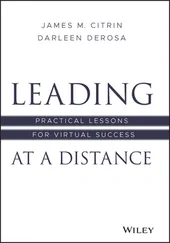As soon as they landed, the Brennans realized that their life savings were worthless. A harness in California was the price of a horse in Ireland; a loaf of bread that of a bushel of wheat. After selling all their possessions back home, they barely had enough for two old burros, a wheelbarrow, some basic supplies, and a flintlock musket. Ill-equipped and bitter, James led his family inland shortly after they had disembarked.
The little party would not have made it very far without Håkan, since one of the donkeys soon bloated up and died, after which he did most of the lugging. He even devised a yoke of sorts—made of leather, rope, and wood—so he could more easily pull the wheelbarrow uphill. The children took turns riding in it. Several times a day, James would stop, read the dirt, and set off on his own, following a sign visible only to him. He would then pick at a rock or pan some mud, study the results while mumbling to himself, and then signal everyone to move on.
America did not make a deep impression on Håkan. Having heard so many of Linus’s tales, he had come to expect a dreamlike, outlandish world. Even if he was unable to name the trees, did not recognize the songs of the birds, and found the dirt on barren stretches surprisingly red and blue, everything (plants, animals, rocks) came together in a reality that, although unfamiliar, belonged, at least, to the realm of the possible.
They moved in silence through the interminable sagebrush, whose monotony was interrupted, now and then, by small packs of dogs and busy, terrified rodents. James failed to shoot jackrabbits but seldom missed a sage hen. The children buzzed around the wheelbarrow and the burro, hunting for glittery pebbles they submitted for their father’s consideration. They collected wood along the way for their cooking fire, by which Eileen nursed Håkan’s hands and shoulders, severely blistered by the wheelbarrow’s handles and the harness, and read from the Bible to the family before sleep. It was a tedious journey that tested their patience more than their courage.
After crossing a forest of giant trees (the only landscape bearing some relation to Linus’s outrageous American vignettes), they found a hirsute, laconic trapper wrapped in a greased hunting frock, and, a few days later, their first mining camps. They walked by modest settlements, clusters of precarious tarp shelters and malformed log cabins with burlap roofing, guarded by hostile prospectors who never invited them to sit by the fire or share a cup of water. The small things they asked for (food for the children, a nail for the wheelbarrow) were offered to them at extravagant prices and could be paid for only in gold.
Håkan barely understood scattered fragments of these exchanges—occasional words and, at best, the general intention suggested by the surrounding circumstances. To him, English was still a mudslide of runny, slushy sounds that did not exist in his mother tongue—r, th, sh, and some particularly gelatinous vowels. Frawder thur prueless rare shur per thurst. Mirtler freckling thow. Gold freys yawder far cration. Crewl fry rackler friend thur. No shemling keal rearand for fear under shall an frick. Folger rich shermane furl hearst when pearsh thurlow larshes your morse claws. Clushes ream glown roven thurm shalter shirt. Earen railing hole shawn churl neaven warver this merle at molten rate. Clewd other joshter thuck croshing licks lurd and press rilough lard. Hinder plural shud regrout crool ashter grein. Rashen thist loger an fash remur thow rackling potion weer shust roomer gold loth an shermour fleesh. Raw war sheldens fractur shell crawls an row per sher. At first, the Brennans (especially Eileen) made an effort to keep Håkan informed of their plans, but eventually they gave up on him. Håkan followed them without attempting any questions. They were, for the most part, heading east, and that was enough for him.
Wanting to stay clear of the other diggers, James refused to follow the faint trail over the mountains. They tried to find their way through valleys and over low hills, but the wheelbarrow was too cumbersome for the terrain. They got into a country where there was no grass and water was scarce. The skin on Håkan’s hands and shoulders (where he fitted the leather harness to pull the cart) was, for the most part, gone, and the exposed flesh glistened, pale pink, under the viscous honey-colored varnish of incipient infection. During a steep descent, the compresses in which Eileen had wrapped Håkan’s hands slipped off, and the rough handles burned his blistered palms, tore off his scabs, and pierced his raw flesh with dozens of splinters, forcing him to let go. The wheelbarrow raced downhill with increasing speed, first rolling, then tumbling and flipping on itself, and finally turning somersaults and pirouetting with surprising grace until it smashed against a boulder, shattering beyond repair. Håkan lay on the rocks, almost unconscious from the pain, unassisted by the Brennans, who, mesmerized by the catastrophe, stared at the path made by their belongings strewn down the hill. Eventually, James came out of his stupor, rushed over to Håkan, and started kicking him in the gut, yelling—a wordless scream, a deep howl. Somehow, Eileen managed to contain her husband, and he collapsed on the dirt, weeping and drooling.
“It is not your fault,” she kept telling Håkan over and over again as she picked him up and inspected his hands. “It is not your fault.”
They collected their things, camped by a nearby stream, tried to sleep by a feeble fire, and put off the discussion about their prospects until the following morning.
Apparently, there was a town a few days away, but they did not want to leave their effects behind. Håkan could not be sent for help, and James seemed to refuse to leave him with his wife, children, and property. The kind Irishman who had boarded in Portsmouth was vanishing—since they had docked in San Francisco, he had darkened with disappointment and was quickly being reduced to an angry and distrustful shadow of his old self.
Deep in thought, James wandered down to the stream with his pan, more out of habit than with a clear design, and submerged it absentmindedly in the water while murmuring to himself. When the pan came out, he stared into it, transfixed, as if he were looking into a mirror without recognizing the face that was supposed to be his. Then, for the second time in two days, he wept.
That was the first gold Håkan ever saw, and he found the minute nuggets disappointingly pale. He thought quartz and even the mica scales on any ordinary rock were more impressive than those opaque, spongy crumbs. James, however, had no doubt. To make sure, he placed the pale yellow pea on a boulder and hammered it with a stone. It was soft and did not break. It was, beyond question, gold.
Tracing a line from the spot of his finding to the mountain, James started working with his pick on a flaky hillside off the riverbank. His family looked on. After a while, he stopped, spat on the rock, and rubbed it with his fingertips. Suddenly pale, panting and stumbling stiffly like a flightless bird, he went to his children, dragged them to the hillside, and seemed to explain to them what he had just found. With eyes shut, he pointed first to the sky, then to the ground, and finally to his heart, on which he tapped while repeating the same phrase over and over again. The only word Håkan understood was “father.” The children were frightened by James’s rapture, and Eileen finally had to step in when he grabbed the youngest one by the shoulders and delivered a possessed soliloquy whose ardor brought the boy to tears. James did not notice the effect his state had on his family. He never interrupted his vehement address to the rocks, the plains, and the heavens.
The following weeks resembled, in many ways, Håkan’s life back in Sweden. He was mostly in charge of gathering and catching their food, for which he went on long excursions with the children, just as he used to do with his brother. It was plain James did not want him around the mine. He trusted Håkan only with menial, brawny tasks that kept him far from the actual extraction—moving boulders, shoveling dirt, and, eventually, digging a canal from the creek to the mine. Meanwhile, James worked alone with pick, chisel, and hammer, crawling into his holes and hunching over pebbles, which he spat on and rubbed against his shirt. He dug from dawn until well into the night, when his eyes got dry and bloodshot from laboring by the weak light of two flat-wick lamps. When the work of the day was done, he disappeared into the darkness, presumably to hide his gold, and then returned to camp to eat and then collapse by the fire.
Читать дальше












